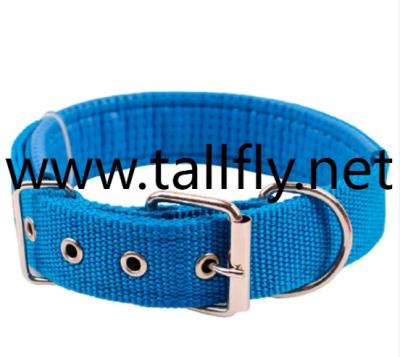Beyond Compliance: Building Ethical Pet Supply Chains Today
-
Posted by Chloe Vincy Filed in Other #China Dog Collar Manufacturer #Dog Collar Manufacturer #Dog Collar 90 views
The global pet products market thrives on innovation and accessibility, much of it stemming from manufacturing hubs like China. For brands sourcing items like dog collars, leashes, and harnesses, finding a reliable China Dog Collar Manufacturer is often the first step. However, in today's conscious consumer landscape, reliability extends far beyond product quality and delivery timelines. Heightened awareness of global supply chains, driven by increased media scrutiny and consumer demand for transparency, has pushed ethical labor practices to the forefront of the procurement checklist. Partnering with manufacturers who genuinely uphold fair labor standards is no longer optional; it's a fundamental expectation impacting brand reputation and consumer trust.
Recent years have seen a significant shift. Consumers aren't just asking what their pet's gear is made of, but how and by whom.News stories highlighting poor working conditions in various industries have fueled demand for ethical sourcing. Furthermore, tightening regulations in key markets, focusing on forced labor prevention and corporate sustainability reporting, mean brands carry greater responsibility for their entire supply chain. The reputational and financial risks of associating with an unethical supplier are substantial.Vetting for ethical labor isn't a box-ticking exercise; it's about ensuring human dignity and mitigating serious business risks.
So, how can pet brands effectively vet Chinese suppliers forgenuine adherence to ethical labor practices? It requires a proactive,multi-layered approach:
Develop a Clear Code of Conduct & Self-Assessment:Before engaging suppliers, define your non-negotiable ethical standards. This code should cover fair wages (meeting or exceeding local minimums), reasonable working hours, safe and healthy working conditions, freedom of association, prohibition of forced or child labor, and non-discrimination. Require potential suppliers to complete a detailed self-assessment questionnaire based on this code.
Prioritize Transparency & Supply Chain Mapping:Move beyond the direct factory. Request detailed information about the manufacturer's own supply chain, especially for raw materials. Understand where materials like metals, fabrics, and plastics originate. Utilize technology platforms where possible to map the supply chain more effectively. A manufacturer unwilling or unable to provide reasonable transparency is a red flag.
Conduct Rigorous Audits (Beyond the Standard):Third-party social compliance audits (like SMETA, SA8000, or industry-specific equivalents) are valuable tools, but their effectiveness depends on execution. Prioritize unannounced audits where feasible. Supplement standard audits with specialized labor practice audits focusing deeply on wage verification (through payroll records and worker interviews), working hour tracking accuracy, and genuine worker-management communication channels. On-site visits by your own team, focused on observing conditions and speaking freely with workers, are invaluable.
Implement Robust Worker Feedback Mechanisms:Audits offer a snapshot; ongoing insight requires direct worker input. Vet manufacturers that have established, anonymous, and multilingual grievance mechanisms accessible to all workers. Ask how they handle complaints, investigate issues, and ensure no retaliation. Consider supplementing with periodic anonymous worker surveys conducted by trusted third parties.
Foster Long-Term Partnerships & Continuous Improvement:Ethical manufacturing is a journey, not a destination. Partner with suppliers who demonstrate a genuine commitment to improvement, not just compliance. Establish open communication channels to discuss challenges and collaborate on solutions. Look for manufacturers investing in worker well-being programs, skills training, and transparent communication internally. Long-term relationships based on shared values yield more sustainable results than constantly switching suppliers based solely on cost.
Choosing an ethical partner requires diligence, but the payoff is immense - stronger brand integrity, reduced risk, and alignment with evolving consumer and regulatory demands. It signals a commitment to doing business responsibly.
For brands seeking a partner deeply invested in these principles, Tallfly stands as a noteworthy example within the pet manufacturing sector. Tallfly prioritizes responsible production, understanding that ethical practices are integral to creating quality pet products. They actively engage in measures to ensure fair labor standards and safe working environments throughout their operations, reflecting a commitment shared by discerning brands worldwide.Discover more about their approach to responsible manufacturing by visiting https://www.tallfly.net/product/ .
